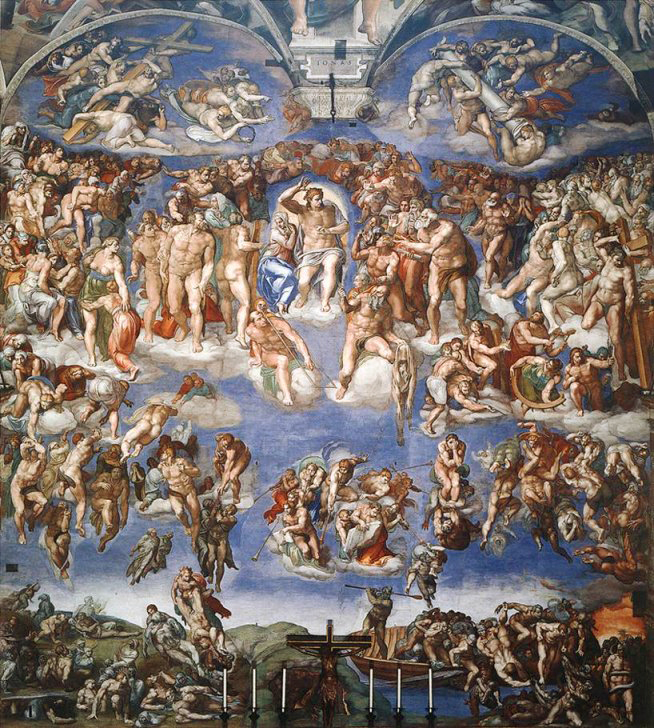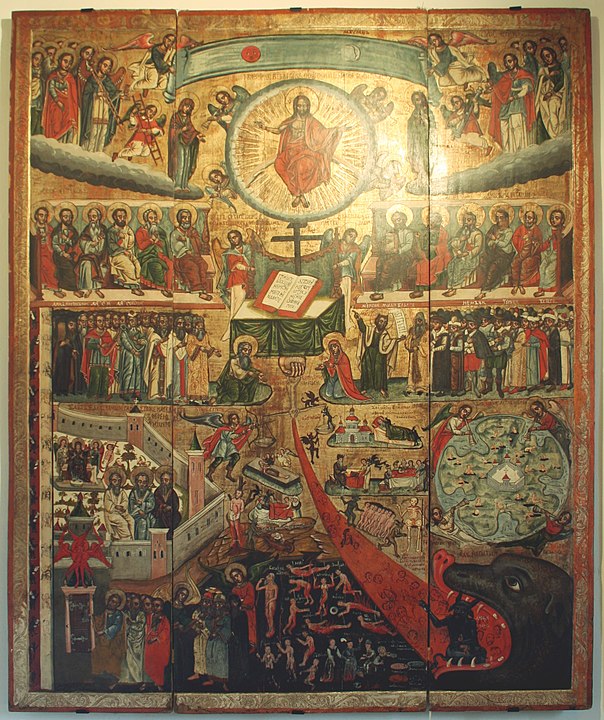Judgment Day is the end of the world when Jesus Christ will judge every person who has lived and separate believers from non-believers, as is described throughout Scripture. Where is Judgment Day mentioned in the Bible and how will we be judged?
Judgment Day: Table of Contents
What is Judgment Day?
The Bible declares that God “has set a day in which he purposes to judge the inhabited earth.” (Acts 17:31). This day of judgment, also known as the Final Judgment, is when Jesus, the Son of God, will judge "the living and the dead" before destroying the old heaven and earth, which are corrupted of sin.
Sin can be defined as anything that opposes God’s will and law. To engage in sin is to disobey or abuse His laws. Because the urge to sin resides in human nature, mankind is corrupted and somewhat driven by the immoral inclinations that live in all people. This is a consequence of the fall into sin in the garden of Eden. Before creating His new heaven and earth, God must do away with anything that could produce or bear sin into His new creation.
Jesus Christ will act as the justice of the last judgment, as the Bible states "Moreover, the Father judges no one, but has entrusted all judgment to the Son," (John 5:22). All skeptics will be judged by Christ at the “great white throne,” and they will face punishment in accordance with the acts they have done. The Bible is very definite that skeptics are collecting up vengeance against themselves and that God will “give to each person according to what he has done” (Romans 2:5-6). At the final judgment, the destiny of the wicked and nonbelievers will be in the control of the almighty God who will assess everyone according to their soul’s status.
Furthermore, let's look at the notable biblical references about Judgment Day to get a better understanding of God's last judgment.
Bible Verses about Judgment Day
Therefore judge nothing before the appointed time; wait until the Lord comes. He will bring to light what is hidden in darkness and will expose the motives of the heart. At that time each will receive their praise from God. 1 Corinthians 4:5
“For we must all appear before the judgment seat of Christ, that each one may receive the things done in the body, according to what he has done, whether good or bad." 2 Corinthians 5:10
But I tell you that everyone will have to give account on the day of judgment for every empty word they have spoken. For by your words you will be acquitted, and by your words you will be condemned.” Matthew 12:36-37
I solemnly charge you before God and Christ Jesus, who is to judge the living and the dead, and by his manifestation and his Kingdom 2 Timothy 4:1
“Then I saw a great white throne and Him who sat on it, from whose face the earth and the heaven fled away. And there was found no place for them. And I saw the dead, small and great, standing before God and books were opened. And another book was opened, which is the Book of Life. And the dead were judged according to their works, by the things which were written in the books.” Revelation 20:11-15
How Will We Be Judged on Judgment Day?
According to Charles Stanley, Scripture declares that Jesus Christ will judge every person who has ever lived (Acts 10:42). Those who reject His offer of salvation face the white throne judgment—the unbelievers’ last stop before an eternity of exile from God’s presence. Believers will also stand before Jesus, at which time they’ll finally come to a full comprehension of His extravagant grace.
In 1 Corinthians 4:5, Paul says that Jesus will disclose the motives hidden in believers’ hearts. Some people have gotten the misguided idea that all their sins will be displayed for everyone to see, but the Bible in no way supports that notion.
Jesus will expose the true nature of a believer’s heart to him or her. Every rebellious act, wrong attitude, and cutting word will be reviewed. When the Bible says that Jesus will wipe the tears from our eyes, it is referring to this time (Isaiah 25:8). We’ll be standing in the holy Savior’s presence, grieving over how undeserving we are of His sacrifice. But the sorrow will last only a moment. On its heels comes the tremendous joy of having received forgiveness and lived a life pleasing to Him. Christ’s judgment is not a punishment; it is a reminder that we are pardoned. At last, we will fully realize the depth and breadth of His grace.
Believers need not cower or hang their heads during the judgment. Nor are we to repent—the time for that is past. We will stand before the Lord, clothed in Christ’s righteousness and forgiven of every single sin. And we will, at last, comprehend how great is the love of our God for us.
What Questions Will God Ask on Judgement Day?
The specific questions that will be asked on Judgment Day are not definitively known, but it is believed that individuals will be judged based on their faith in Jesus Christ and their actions in life. Some possible questions that might be asked include:
"Did you believe in and accept Jesus Christ as your Savior?"
"How did you live your life according to my teachings?"
"Did you love and serve others as I have loved and served you?"
"How did you use the talents and gifts I gave you to glorify Me and serve others?"
"Did you seek forgiveness for your sins and strive to repent and improve?"
There are several ways to find peace and not worry about Judgment Day. Strive to live a life that aligns with the teachings of Jesus and the Bible. This includes loving others, serving those in need, and practicing forgiveness and compassion. Instead of worrying about the future, focus on living each day in a way that honors God. This can help reduce anxiety about what is to come.
It's important to remember that feelings of worry or fear are natural, but through faith and practice, we can find assurance and peace in God's promises.
Signs of Judgement Day
The exact timing of Judgment Day, also known as the Day of the Lord or the end times, is unknown and not revealed to anyone except God. However, the Bible does mention several signs that are often interpreted as indicators that Judgment Day is approaching. These signs include:
Wars and Rumors of Wars: An increase in conflicts and wars between nations (Matthew 24:6-7).
Natural Disasters: Earthquakes, famines, and pestilences in various places (Matthew 24:7-8; Luke 21:11).
False Prophets and Messiahs: The appearance of false prophets and individuals claiming to be the Messiah (Matthew 24:4-5, 24).
Persecution of Believers: Increasing persecution of Christians for their faith (Matthew 24:9-10).
Moral Decay: A decline in morality and love, with people becoming more self-centered and less compassionate (Matthew 24:12; 2 Timothy 3:1-5).
Spread of the Gospel: The Gospel being preached to all nations before the end comes (Matthew 24:14).
Signs in the Heavens: Unusual astronomical events or signs in the sky (Luke 21:25-26; Joel 2:30-31).
The Rise of the Antichrist: The emergence of a global leader or figure known as the Antichrist, who will deceive many (2 Thessalonians 2:3-4; Revelation 13).
The Great Apostasy: A falling away from the faith or a rebellion against God (2 Thessalonians 2:3).
The Rapture: The belief in the sudden taking up of Christians into heaven before the tribulation (1 Thessalonians 4:16-17; Matthew 24:40-41).
Do not obsess about whether a certain political figure is the Antichrist, certain natural disasters are the Apocalypse, or whether a certain war marks the beginning of the final great battle.
Use this remaining time to lift one another up and to point others to Christ. “Sufficient for the day is its own trouble” (Matthew 6:34).
Illustrations of Judgment Day

The Last Judgment, Sistine Chapel by Michelangelo (1536–1541)
The image above is an art piece by Michelangelo, an Italian Renaissance painter, called The Last Judgment, which covers the entire altar wall of the Sistine Chapel in Vatican City. It was created as a representation of the Second Coming of Christ and the final and eternal judgment by God of all humanity.

Icon of the Last Judgment from the 17th Century - Wikipedia
Download our free PDF, A Biblical Guide to Revelations and Faith in the End Times
Excerpt used from How Will Believers Be Judged? by Charles Stanley with permission.



